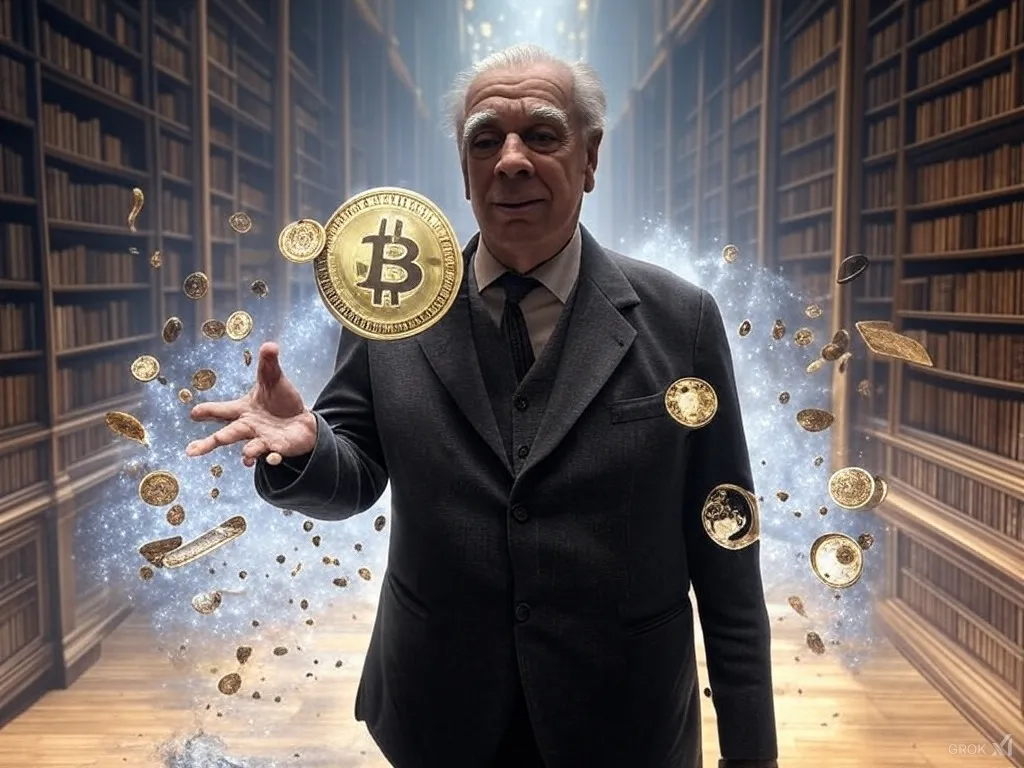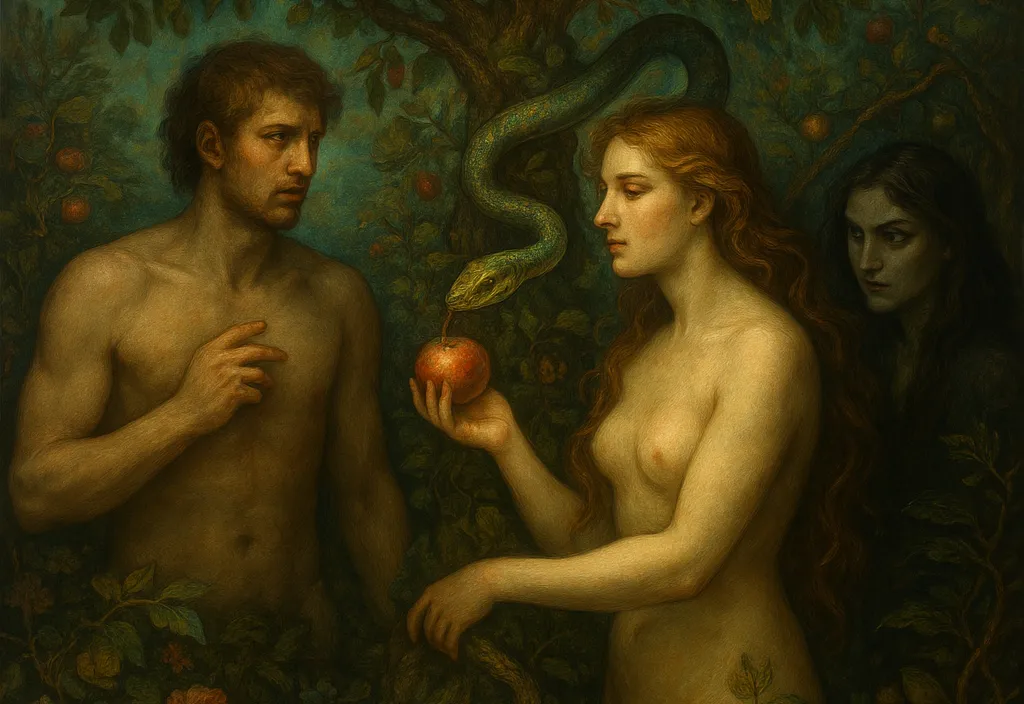Inspired by Jorge Francisco Isidoro Luis Borges Acevedo, kurz Jorge Luis Borges [ˈxorxe ˈlwis ˈβorxes] ( 24. August 1899 in Buenos Aires; † 14. Juni 1986 in Genf) @fergmolina imagined the Library of Ethbel,
He quoted:
Nada hay menos material que el dinero, ya que cualquier moneda (una moneda de veinte centavos, digamos) es, en rigor, un repertorio de futuros posibles. El dinero es abstracto, repetí, el dinero es tiempo futuro. Puede ser una tarde en las afueras, puede ser música de Brahms, puede ser mapas, puede ser ajedrez, puede ser café, puede ser las palabras de Epicteto, que enseñan el desprecio del oro; es un Proteo más versátil que el de la isla de Pharos. Es tiempo imprevisible, tiempo de Bergson, no duro tiempo del Islam o de Pórtico.
And With My Friend, ChatGPT o1 Pro, We Explored the Meaning of the Quote.
- Money as Abstract Possibility: Borges says: “Nada hay menos material que el dinero…es, en rigor, un repertorio de futuros posibles.”
This means that money is not just a physical coin; it is the power to bring about many different potential outcomes. A single coin can become a cup of coffee, a concert ticket, a book of philosophy, or a multitude of other things.
His emphasis is on money as capacidad or potencia—it is a placeholder for whatever future use we choose. - References to Epictetus and the Despising of Gold: Borges mentions “las palabras de Epicteto, que enseñan el desprecio del oro.”
Epictetus was a Stoic philosopher who encouraged detachment from wealth and material goods. This is an ironic twist: even the text that teaches the contempt of gold can itself be purchased with gold. Money thus holds within it the potential for both material acquisition and philosophical denial of materialism. - Proteus as a Metaphor: Borges calls money “un Proteo más versátil que el de la isla de Pharos.”
In Greek mythology, Proteus was a shape-shifting god who could assume endless forms. Borges uses Proteus as a symbol of infinite potential.
By comparing money to Proteus, Borges suggests that money can take on any “shape” in our lives—an outing, a piece of art, chess, or music. - Time as Bergsonian vs. “Hard” Time: Borges writes: “Es tiempo imprevisible, tiempo de Bergson, no duro tiempo del Islam o de Pórtico.”
Henri Bergson’s idea of time (la durée) is fluid and subjective, emphasizing an ever-changing flow of lived experience rather than a fixed sequence of moments.
“Hard time” could refer to more rigid, deterministic conceptions of time in certain theological or philosophical traditions. Borges is saying that money belongs to a realm of open-ended, unfolding possibilities (Bergsonian time), not a strictly linear or predetermined flow. - The Essential Meaning: Money as Immaterial Potential: By calling money “the least material thing,” Borges overturns the usual view of currency as something tangible and solid.
Instead, money is potentia, an instrument through which we project our desires and intentions into the future, allowing it to become virtually anything, or—paradoxically—nothing at all, if we choose not to spend it.
Overall Significance
Borges’s text challenges us to see money not as mere metal or paper but as an abstract key that can unlock countless future experiences. Its material appearance obscures how fundamentally immaterial it is: a symbolic token of whatever we might do or become. Like time in Bergson’s philosophy, money is unpredictable and subjective, shaping itself to our aims and values. This short reflection thus captures a distinctly “Borgesian” philosophical stance: ordinary things—like a coin—contain infinite complexity and open the door to reflection on choice, time, and the protean nature of human potential.
The Library of Ethbel: What happens if you mix #Ethereum , #Solidity and #Borges ? Basado en el capítulo 3 de "Borges, Big Data Y Yo" de @wsosaescudero https://t.co/OtBMpzedPJ#ETH #MATIC #Solana #BTC
— Fernando Molina (@fergmolina) September 14, 2021




